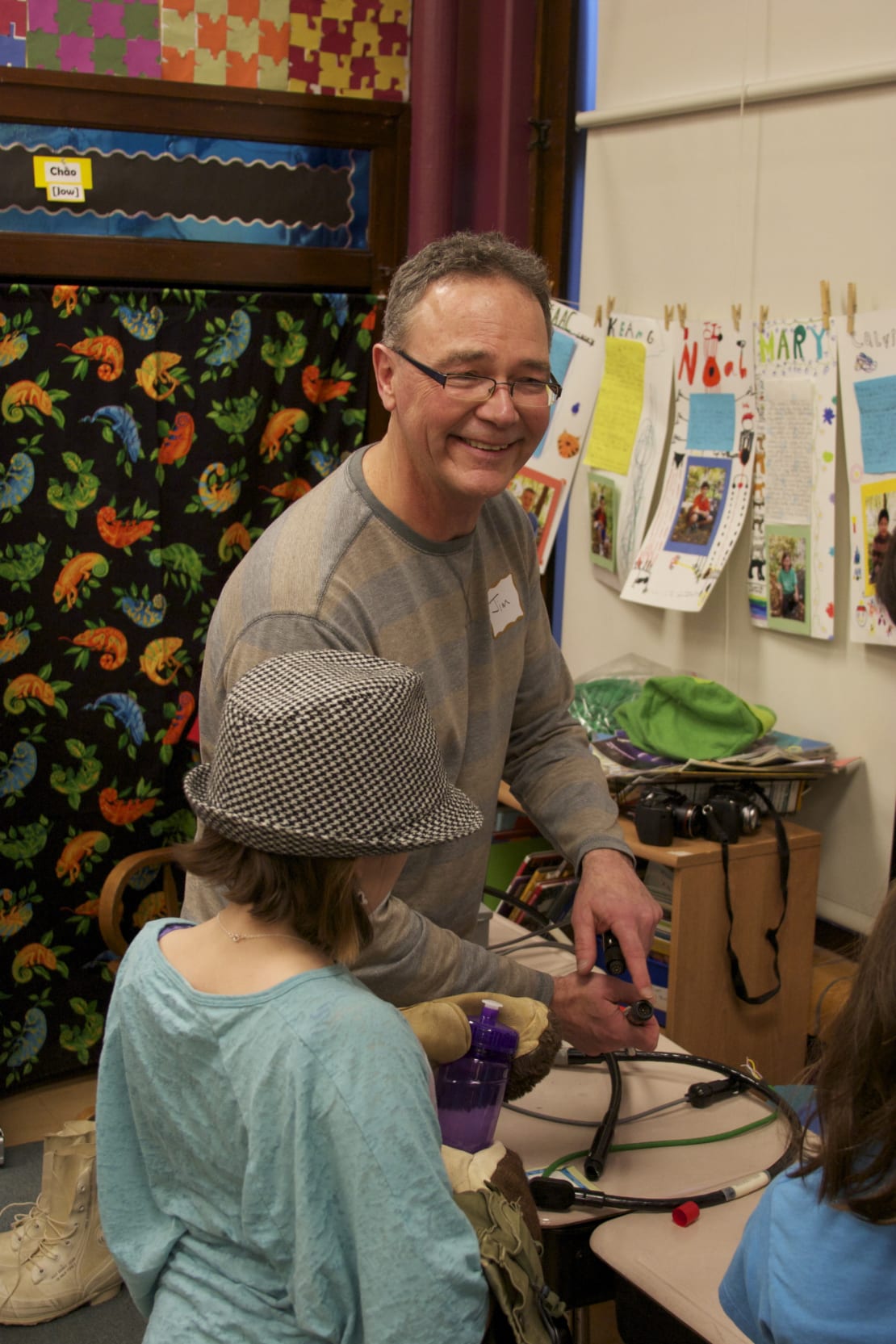
Jim Madsen, interim director of the Wisconsin IceCube Particle Astrophysics Center (WIPAC) at the University of Wisconsin–Madison and associate director for education and outreach for the IceCube Neutrino Observatory, recently announced that he was retiring after 25 years with IceCube and its predecessor AMANDA. His last day in the office was August 2.
“With a passion for education, outreach, and science, combined with his undeniable leadership skills, Jim transformed WIPAC from a concept into what it is today,” says Francis Halzen, UW–Madison physics professor and IceCube principal investigator.
Madsen received his PhD in physics from the Colorado School of Mines before becoming a faculty member at the University of Wisconsin–River Falls.
Madsen has passionately contributed to IceCube since its early days, including helping to write the original proposal. That opportunity was pure serendipity, a result that Madsen never imagined when, as an undergraduate physics student at UW–Madison he met Halzen.
“Fifteen years later, I was looking for a research opportunity for a sabbatical project. I mentioned to Francis how disappointed I was to have my proposal denied the previous year,” recalls Madsen. “He said, ‘Apply again, and tell them you will work with me.’ And I of course agreed and joined a great group that ultimately changed the way we view the universe.”

While a professor at UW–River Falls, Madsen provided research experiences for over 150 undergraduate students, some of whom spent summers in Europe and a few who deployed to the South Pole. These were among his most rewarding accomplishments and evidence of his dedication and enthusiasm for teaching and mentorship. He recalls fondly “all the amazing people I’ve had a chance to meet, and have particularly enjoyed when I could help support their success.”
Shortly after joining IceCube, Madsen conceived IceCube’s dynamic education and outreach program, which continues to flourish with opportunities to share the weird world of the neutrino with the public. He has facilitated research experiences at the South Pole for almost a dozen K-12 and informal educators, many of whom have contributed to a summer science enrichment course for a diverse group of high school students in the UW-River Falls Upward Bound program. But especially memorable to Madsen are his multiple extended projects with international artists that have broadened exposure, expanded perspectives, and engaged new audiences.
“Jim developed an education and outreach program with incredible breadth and impact,” says Ellen Bechtol, outreach program manager at WIPAC. “Always one to say ‘yes’ when possible, Jim saw to it that IceCube science, and the work of the people behind it, was shared far and wide. He inspired countless individuals and put in place programs and relationships that will run far into the future.”
Madsen also cowrote and produced a planetarium movie on IceCube, called Chasing the Ghost Particle: From the South Pole to the Edge of the Universe, seen by tens of thousands and in multiple countries. He has given hundreds of presentations on IceCube and has done at least one IceCube science talk on all seven continents.
“I’m pretty sure there is a limited number of people that can say that,” says Madsen.
In 2020, Madsen joined WIPAC as executive director and has been interim director for the last two years. During his tenure, Madsen fostered collaborations with cross-campus units and organizations, including a partnership between the Wisconsin Department of Public Instruction and the Field Day Learning Games lab in the Wisconsin Center for Education Research at UW–Madison to develop an astrophysics-themed educational video game. His work with the UW–Madison Wisconsin Institute of Discovery CAVE (cave automatic virtual environment) group evolved into a project that produced an IceCube virtual reality experience, with the same group having a multimillion dollar grant from the National Science Foundation to produce four more polar virtual reality experiences.

“Jim left a lasting impact on IceCube and WIPAC,” says Albrecht Karle, UW–Madison physics professor, IceCube associate director for science and instrumentation, and IceCube Upgrade principal investigator. “He advanced and strengthened both organizations and was an incredible ambassador of our science.”
While planning is underway to select a new associate director for education and outreach, Bechtol will be the manager of education and outreach at WIPAC. UW–Madison alum and theoretical physicist Dan Hooper will be the new director of WIPAC starting in September.
As for retirement, Madsen is looking forward to working in his woodworking shop and finishing construction on his new house. Oh, and he’s building his own furniture, too.
“It has been a great honor and an amazing journey working with the wonderful, passionate people who made neutrino astronomy a reality over the last two and a half decades. Exploring the extreme universe using a telescope built into the South Pole ice remains a captivating topic,” says Madsen. “I can’t express how fortunate I feel to have had a part in telling this story to the research community and beyond as part of the IceCube Collaboration.”